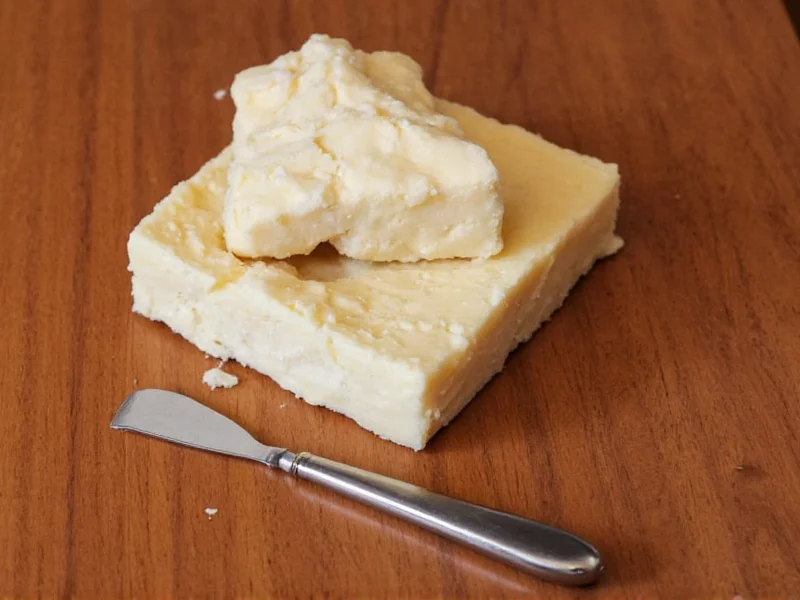Ancho chiles represent one of the most versatile ingredients in Mexican cooking, frequently misunderstood by home chefs who encounter the term 'butter ancho' in recipes or cooking discussions. This confusion typically stems from mishearing or misspelling 'ancho,' which refers to a specific type of dried poblano pepper, not a butter variety.
Understanding Ancho Chiles: The Basics
Ancho chiles are dried poblano peppers that have been allowed to ripen to a deep red color before harvesting and drying. The name 'ancho' means 'wide' in Spanish, referring to their broad, flat shape. When properly prepared, these chiles offer a complex flavor profile featuring:
- Notes of dried fruit (particularly raisins and figs)
- Subtle smokiness
- Earthy undertones
- Mild to medium heat level (1,000-2,000 SHU)
Unlike butter, which serves as a fat component in cooking, ancho chiles function as a flavoring agent. The confusion between 'butter' and 'ancho' likely occurs because both terms appear in cooking contexts, but they serve entirely different culinary purposes.
Using Butter with Ancho Chiles: Practical Applications
While 'butter ancho' isn't a recognized culinary term, combining butter with ancho chiles creates delicious flavor foundations for many dishes. Professional chefs frequently use this technique when preparing:
| Dish Type | Butter-Ancho Application | Recommended Ratio |
|---|---|---|
| Sauces | Ancho-infused butter for mole or adobo | 2 tbsp butter : 1 dried ancho |
| Meat Preparation | Ancho butter compound for steak or poultry | 4 tbsp butter : 1 tsp ancho powder |
| Vegetable Dishes | Tossed with roasted vegetables | 1 tbsp butter : 1/2 tsp ancho powder |
| Grains | Stirred into rice or quinoa | 1 tbsp butter : 1/4 tsp ancho powder |
Creating Perfect Ancho-Infused Butter
When exploring how to use ancho chiles with butter, proper preparation makes all the difference. Follow these professional techniques for optimal flavor extraction:
Dried Ancho Method
For authentic ancho butter recipes using whole dried chiles:
- Remove stems and seeds from 1-2 dried ancho chiles
- Toast lightly in a dry skillet for 30-60 seconds per side
- Soak in hot water for 15-20 minutes until softened
- Blend with 4 ounces of softened butter until smooth
- Season with salt and additional spices as needed
Ancho Powder Method
For quick preparation using ancho chile powder:
- Combine 4 ounces softened butter with 1-2 teaspoons ancho powder
- Add complementary spices (cumin, garlic powder, oregano)
- Mix thoroughly until uniform color is achieved
- Chill for at least 1 hour before use to allow flavors to meld
Common Misconceptions About Ancho Chiles
Several misunderstandings persist regarding ancho chiles that contribute to the 'butter ancho' confusion:
- Misconception: Ancho is a type of butter or dairy product
Reality: Ancho refers exclusively to dried poblano peppers - Misconception: Ancho chiles are extremely spicy
Reality: They rank mild on the Scoville scale (1,000-2,000 units) - Misconception: All dried red peppers are anchos
Reality: Anchos specifically come from ripe poblanos; other varieties like guajillos or pasillas are different
Substitutions and Alternatives
If you're searching for 'butter ancho' because you can't find authentic ancho chiles, consider these alternatives:
- Guajillo chiles: Similar mild heat with brighter fruit notes (use 1:1 ratio)
- Chipotle powder: For smokier profile (use 1/2 amount due to stronger heat)
- Paprika + cumin: Basic substitute (2 parts paprika to 1 part cumin)
- Dried pasilla: Earthier flavor profile (use 1:1 ratio)
Remember that no substitute perfectly replicates the unique sweet-smoky balance of genuine ancho chiles, but these options work well in most butter-based sauce applications.
Storage and Preparation Tips
Proper handling ensures your ancho chiles deliver maximum flavor when combined with butter:
- Store dried anchos in an airtight container away from light and heat
- Refrigerate ancho-infused butter for up to 2 weeks or freeze for 3 months
- Always remove seeds before using dried anchos to prevent bitterness
- Toast dried chiles briefly before rehydrating to enhance flavor complexity
- Use unsalted butter when creating ancho butter to control sodium levels
Popular Dishes Featuring Ancho and Butter
Understanding how to incorporate ancho chiles with butter opens up numerous culinary possibilities. Some classic applications include:
- Mole Poblano: The national dish of Mexico featuring chocolate, spices, and ancho chiles emulsified with butter or oil
- Ancho Butter Steak: Compound butter with ancho, garlic, and herbs for finishing grilled meats
- Roasted Vegetable Toss: Ancho butter enhances caramelization and adds depth to root vegetables
- Creamy Ancho Sauce: Blended with butter, broth, and cream for enchiladas or tamales
When preparing these dishes, the butter serves as both a flavor carrier and textural component, while the ancho chiles provide the distinctive taste profile that defines these recipes.











 浙公网安备
33010002000092号
浙公网安备
33010002000092号 浙B2-20120091-4
浙B2-20120091-4